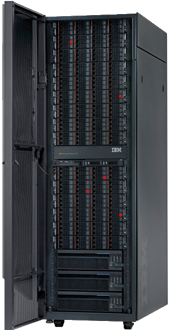Data Recovery means that data from media carriers, such as hard disks, USB sticks and SD cards, that appears to be lost, are recovered. The data that is considered lost is often still on the media carrier, but for various reasons, it is no longer retrievable via the usual route. The raid data recovery takes the data on the media back to the surface through detours. Data recovery can be used if your media carrier is damaged. This can be physical damage to the hardware but can also be software-based. Also, Data recovery is used to retrieve data from media carriers that are confiscated during house searches and criminal activities. In the context of a criminal investigation, deleted data can be recovered on hard disks.
Causes of data loss

Data loss can occur in various ways. Changing several bits in a file can already cause a file to no longer to be readable. It is also possible that files with the same file name are accidentally saved so that one of the files is deleted. Also, hard writing can be damaged. Hard drive damage may be caused by fire or water damage, for example, or by dropping or bumping the disk. Overheating of a media carrier can also be a cause of data loss.
The most common causes of data loss
HDD failure
The most common cause of losing data is because the hard drive of the laptop or desktop fails. Seventy-one per cent of companies indicated this as the way they often lost data.
SSD failure
In second place with 10 per cent, is the failure of Solid State Drive (SSD). Although there is an increasingly large-scale adoption of SSDs, due to the many benefits of these SSDs, their dependence also has major consequences if this technology fails.
Virtual services
The loss of data can happen due to problems with virtual services. This is also a problem, as more and more companies are busily virtualising their data.
Discovering that you have lost data without backing up can be heartbreaking, but it’s not necessarily the end of the world.
With the best free backup software and a little patience, the chances are that you can recover your valuable data, whether it is an individual file or a full partition. Perhaps most importantly, you can probably do it for free instead of having to pay a small fortune to call the experts.
Tips in data recovery
Facilitate the recovery of computer data
- In case of data loss, do not try to restart your equipment; this can aggravate the problem and make the recovery process more difficult or unnecessary.
- Avoid sources of heat or moisture once you have removed the hard drive, its components could be damaged.
- Do not use user data recovery software; they are reserved for specific failures.
- Do not try to open the device.
- In case of data loss, call professionals who will tell you what to do and advise you on the best options.
If you have lost data, we recommend that you follow the advice we give you below. In this way, you will simplify the recovery of your data and avoid aggravating the situation. However, do not hesitate to contact data recovery experts if you need information. They would be delighted to help you.




